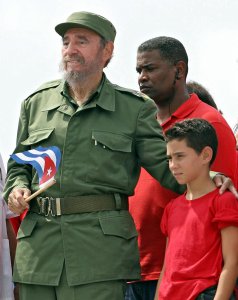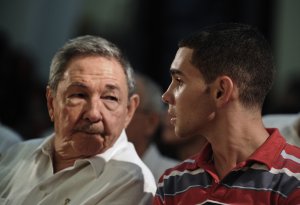Elian Gonzalez, who was at the center of a controversial international custody dispute when he was a boy, saw the late Fidel Castro as a father figure.

“He is a father who like my father, I wanted to show him everything I achieved, that he would be proud of me,” the 22-year-old Gonzalez said in a TV interview this weekend after Castro’s death late Friday.
“That’s how it was with Fidel. If I learned something and wanted to show him. And there are still many things I want to show him.”
World attention
Elian’s situation captured the world’s attention in 2000 and his story became a flashpoint between supporters and opponents of Castro.
In November 1999, the boy was found clinging to an inner tube after the tiny boat he was traveling in from Cuba sank on the way to the United States. His mother and nine other people in the boat drowned.

After his rescue, he was placed with relatives in Miami, who wanted to keep him in the United States.
But Gonzalez’s father fought to bring him back to Cuba. Then-Cuban leader Fidel Castro led massive protests in Cuba demanding Gonzalez’s return.
The U.S. government removed him at gunpoint from his relatives’ home in Miami and after a legal battle, the government sent him back to Cuba in June 2000 to live with his father.
Today, Elian Gonzalez is well-liked and prominent among pro-Castro Cubans. Opponents of the Cuban government see him as a prop for the regime and he’s not warmly viewed in the Cuban exile community.














